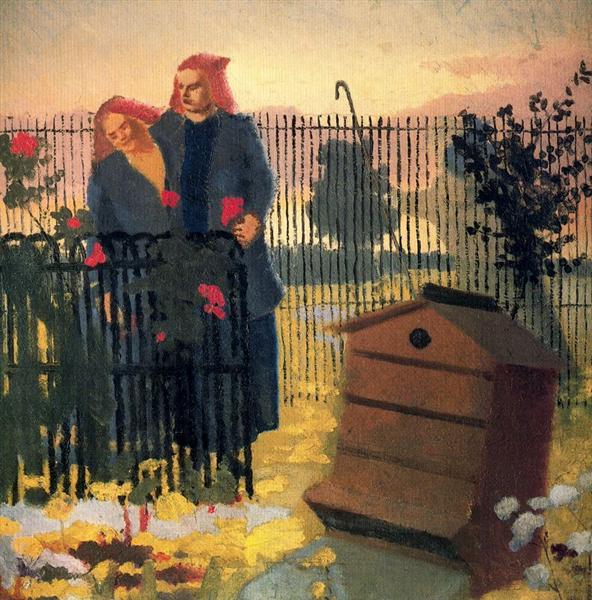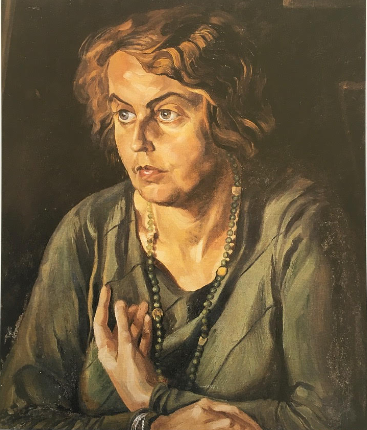In-words’ first Zoom event took place on Tuesday, October 13 at 7.30. Rosie Jackson and Graham Burchell read from Two Girls and a Beehive, their joint collection of poems inspired by the lives and works of Stanley Spencer and his first wife, Hilda Carline. It was much more than a reading. Paintings and photographs illustrated the context of each poem, as details of the complex relationship Spencer had with both his wives (he divorced Hilda to marry Patricia Preece, but remained – or became again – very attached to, almost obsessed with Hilda) was explained. As was his much easier relationship with Cookham, where he was born and lived for most of his life.
Each poet had found, in the writing, a preference for focusing on particular aspects of Spencer’s life and a distinct style. Graham’s poems are ekphrastic, with a more obvious connection between verses and images, while Rosie’s start from the image and expand into a more emotional universe.
Here is a taste of Two Girls and a Beehive. I’m sure you will enjoy it. The title poem, with the accompanying early painting by Stanley Spencer – also the book cover – is by Graham. The other is Lady in Green by Rosie, accompanied here by the portrait Hilda painted of her rival, Patricia Preece, the woman for whom Stanley left her. The book was published in April 2020 by Two Rivers Press, after the collection won first prize at the Stanley Spencer Collection Competition in 2017. It is available to order from rosie@rosiejackson.org.uk as well as from from tworiverspress.com and Amazon. It’s a real treat.

Two Girls and a Beehive
after ‘Two Girls and a Beehive’, 1910
He has these butcher’s daughters
(both ginger-haired as honeycomb and sunset),
smelling roses, just that, as if oblivious
to the hovering of the holy ghost behind
and that box of whispering bees.
He loved them both, those Wooster girls,
dressed them in shades of privet green,
gave them an evening glow and posed them
on puddles of light; the last gold lily-pads
of the day.
At times they would sit, Dot
and Emmie, on his garden wall, chatter
and giggle, backs against black railings,
and hedge of that same viridian hue.
Perhaps he felt himself to be
supernatural, as he watched
from the nursery window, thinking,
I can look and linger on you my two loves,
but you cannot see me.
But what of the bees, the honey-makers
in their Mill Lane hive? He paints them at rest,
contained, still as evening, a potential
for both sweetness and pain.
Just that.

Lady in Green
after Hilda Carline Spencer’s ‘Portrait of Patricia Preece’, 1933.
She must like butter, Hilda thinks,
for her skin has that buttercup glow
as if she’s rolled all morning in a meadow
of wild flowers and is covered in pollen.
Hilda’s palette is limited,
she doesn’t like the muddy browns
of mistrust, but paints people as if light
were spread equally inside them,
as if it were possible to capture the soul
in its invisible perfection, as clear
as water, able to run into any shape.
But she knows how yellow turns to green
in the shadow and has to push away
the thought of what Patricia has
that she doesn’t – her husband’s longing,
a certain knack with necklaces and hats.
She mixes canal green for Patricia’s blouse,
starts on the string of glass beads
Stanley probably bought.
If her canvas were a mirror, she thinks,
she might catch sight of her own tall soul
standing behind her,
watching over her shoulder,
solemnly wringing its hands.
